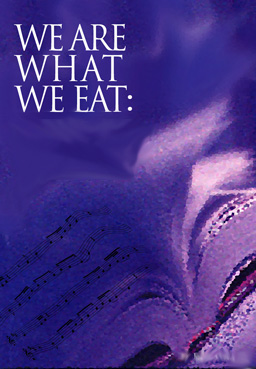| |
Of What
Do We Sing?
The Role
of Music in
Liturgy
_______________________________
Music in Catholic Worship:
The Bishops Re-visit Vatican II
The third Document influencing the parish vision, conciliar in its origins, but the work of the United States Bishops’ Committee on the Liturgy, is Music in Catholic Worship.
The document begins with a statement of Liturgical theology offering two insights that have driven the best efforts of liturgical renewal, insights that would indeed fuel this vision: “ People in love make signs of love, not only to express their love but also to deepen it. Love never expressed, dies. Christians’ faith in Christ and in each other, must be expressed in the signs and symbols of celebration, or it will die… Good celebrations foster and nourish faith. Poor celebrations weaken and destroy faith.”
Honest and joyful celebration is key to effective and authentic liturgy.
Participants in liturgy, whether volunteer of professional, will see their ministry not as a job, a task, but as a celebration of faith. The sense of prayer and ministry will permeate the preparation and execution of all liturgical functions.
Repertoire and stylistic decisions will be made with three criteria that will allow the assembly to express their faith:
the musical judgment,
the liturgical judgment, and the pastoral judgment.
Musical Judgment:
This
is the piece sound musically? Strong in its melodic and harmonic composition, with lyrics that fit well the flow of the music? Is it memorable? Written in a vocal range and rhythmic structure accessible to non-musically educated members of the assembly?
Liturgical Judgment:
Does the music advance the sense of the particular day’s celebration, the season, the purpose of the liturgical action or rite it accompanies? Does it enhance the faithful’s understanding of the liturgy and the organic flow of the Liturgical Calendar?
Pastoral Judgment: Does the music speak authentically to the lives and needs of the assembly? Is it sinagable, by the common person? Accessible to the untrained voice? Does it engage, and stretch, the capacity of the assembly to sing and participate? Do the lyrics of the music resonate genuinely with the theological constructs of the modern Church?
This Vision in summary?
The Parish Music Program promotes an experience where the genuine and passionate voice of the faithful rings through the Church. A voice that propels itself from the church into the family environment, into the affairs of the world. The program promotes a parish repertoire that is Lectionary-driven, reflective of post-Conciliar liturgical principles, musically sound, lyrically compelling, community-engaging and assembly-accessible, drawing from the best of newly composed and traditional congregation-focused literature.
The program is seen as a ministry to the congregants of the parish, offering a pastoral environment that acknowledges the parish’s complex millieu and that meets the spiritual and pastoral needs of the assembly. It fuels the faithful to participate in the building of the Kingdom and the healing of the world at large
It is a program focussed on Pastoral excellence, where financial and staff resources are assigned to developing the effectiveness of the liturgical experience, not its performance and prestige value. Education in and fostering of post-Conciliar principles of music as prayer, as the dynamic and simple interchange and communication between the people of God and our loving Creator, and as ministry by, with and for the assembly will be the natural topic of conversation among staff and volunteers, and the driving force that shapes decisions.
It is a program that acknowledges our sophistication, but is humbled by the simple, elemental reality of common men and women gathered together to express, as the “very stones that would cry out” their elemental connection to their God, and their fundamental connection to each other.
Download Slideshow of Vatican II 
|
 |
|